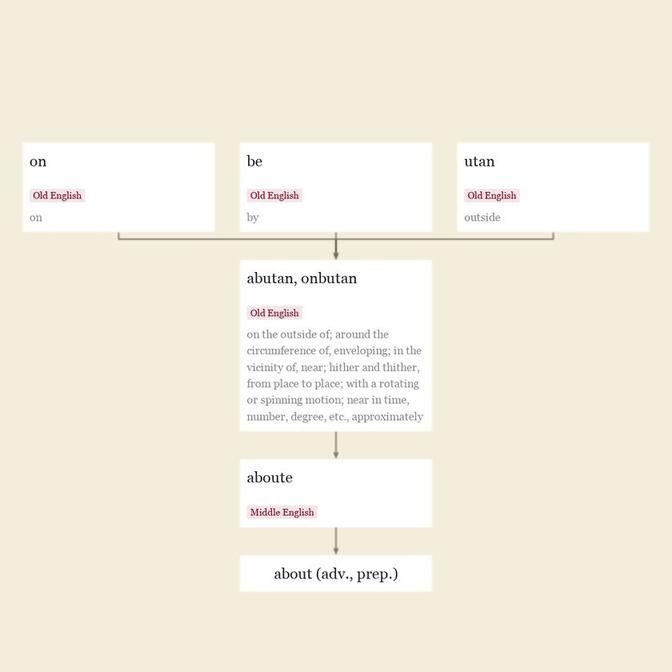whereabout adv.
"
Entries linking to whereabout
Old English hwær, hwar "
It has figured in a great many prepositional and adverbial compounds through the years; in addition to the ones listed in this dictionary (whereas, wherefore, whereabouts, etc.) English has or had whereagainst, wherefrom, wherehence, whereinsoever, whereinto, wheremid, whereout, whereover, whereso, wheresoever, wherethrough, whereto, whereunder, whereuntil.

Middle English aboute, from Old English abutan (adv., prep.), earlier onbutan "
By c. 1300 it had developed senses of "
From mid-13c. as "
To bring about "
"
updated on March 27, 2014